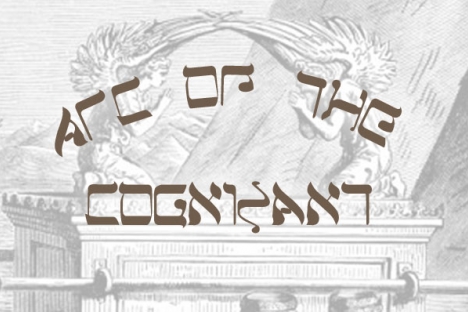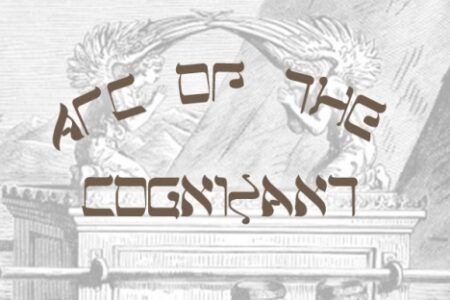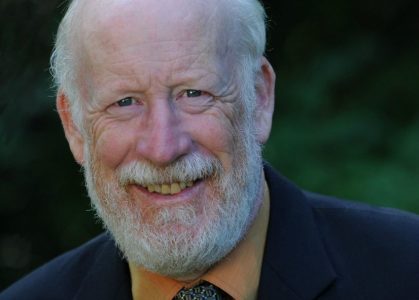Column: Parsing one of British history's powerful figures
A History Maker, observed
The true test of character is not adversity. It is possession of power. Give someone power and watch what they do. — anonymous proverb
If anyone whatsoever think the interest of Christians and the interest of the nation inconsistent, or two different things, I wish my soul may never enter into their secrets… And upon these two interests, if God shall account me worthy, I shall live and die. — Oliver Cromwell, April 3, 1657
History-makers
There are few more straightforward questions one can put to an historian than this one: “Do
‘great’ individuals direct what happened in history?” And of course the summary answer is “Yes”.
But a professional historian qualifies that simplicity and articulates a more-complicated human reality.
A historical figure of political significance, but known only in one nation, is not a history-maker of the first rank. Yet he’s most definitely not like most of us, the obscure, unnoticed masses. History cannot chronicle us for lack of anything notable in our deeds. We are History’s background.
Oliver Cromwell, Lord Protector of the Three Kingdoms (1653-58) is a figure of intermediate stature in English and British Isles history. A man whose mark was made in the Revolution and civil war that raged in his lifetime, raising him to power in those lands, he is my subject today.
A Man and his “Moment”
No one would doubt the significant role that character claims in the record left by a powerful leader. Cromwell is most interesting because, not being a great noble lord or Church-man — neither nurtured nor indoctrinated to steer societal direction — Cromwell was merely a “gentleman.”
Cromwell indisputably believed that Providence ruled him. All actions he took were judged by God; he fully lived the Calvinist doctrine of the spiritual Elect, chosen by Grace. Before a period of spiritual darkness ended by his discovery of his own “election”, he felt himself to be “the chief of sinners” and “mired in badness.” He aspired for the English People to be an Elect nation.
https://christianhistoryinstitute.org/magazine/article/puritan-moses
Providential approval of his career, Cromwell would say, is revealed by the facts of his success.
https://www.cromwellmuseum.org/cromwell/cromwell-the-man/lord-protector
His unique spiritual-religious-political characteristics drove him down paths beyond his control. There he made as creditable a career as one could reasonably expect from such a man in that era.
Politics that matter still
British politics have mattered to global evolution. The British Empire — and all it implies for world history — was launched by events and people during the reign of Queen Elizabeth I, not long before. Cromwell and Parliament were consciously pushing forward England’s imperial reach.
[https://www.dailymail.co.uk/news/article-1343232/Was-Oliver-Cromwell–founder-British-empire–greatest-Englishman.html for an English chauvinist’s view of his “greatness” ]
Cromwell terminated the House of Lords; he was a democrat opposed in principle to aristocracy. Still he upheld social hierarchy and class status, respecting the greater rights of the propertied – “who have an interest in the kingdom” – over men who “merely breathe the air”. He suppressed the “Levellers” who wanted extreme social equality. He was proto-liberal, not -socialist.
His politics were lucidly not those of King Charles I who believed in “rex lex” – the Sovereign King IS the Law. Cromwell and the Commons made their point in blood: “lex rex” — Law is Sovereign. His power ultimately rested on the force of an Army, not parliamentary legality.
The Revolution and Civil War that Cromwell came to dominate are not small events. The ascent of England to world power and empire, which of course touches Canadian history intimately, was just in its infancy but never reversed from this time onward.
https://jamespetersnell.wordpress.com/2015/10/07/oliver-cromwell-the-holy-warrior/
Religion, Democracy, Society
Issues of freedom of speech, the press, assembly, parliament: key issues in Cromwell’s brief career; he did as well as any contemporary leader, better than most, in forwarding these principles. He established liberty of (religious) conscience for private practice.
But Cromwell was a man subject to historical context: he enforced the illegal status of Roman Catholicism in public as was normal in Protestant realms of that time. Catholic lands committed the same awful acts against Protestants; the Inquisition was very powerful in his time.
Ireland, a majority Catholic nation, particularly reviled him for enforcing parliamentary law outlawing the pope’s church. He perceived himself as a liberator of the peasantry from authoritarian clerical government keeping the Irish “in darkness.” [* see Appendix ] https://stlukesmuseum.org/edu-blog/part-2-the-curse-of-cromwell/
He is outstanding in his era for his statute allowing Jews to live in the British Isles after exile for more than three centuries. https://www.jewishnews.co.uk/the-great-protector/
George Fox, founder of the Quakers, met Cromwell and “spoke truth to Power” by telling the autocrat to relinquish his crown at the feet of Christ. The leader wept and told Fox “I bear you no more ill will than I do to my own soul” – but left Fox in prison where the courts put him for religious “crimes”. (Parliament declined to execute Fox in a vote of 96 to 82; he stayed in jail.)
John Milton, English poet of giant stature from this era, exalted Cromwell in 1654, then recanted his praise because the Protector never re-established the House of Commons as supreme in the land; Cromwell experimented constantly to create a Commons of “saints” but failed in this (!)
It seems he may well have believed Christ would return to earth if he succeeded in making the English a godly Elect, which explains his enforcement of Puritan laws to suppress sin and vice.
https://www.olivercromwell.org/wordpress/articles/oliver-cromwell-and-the-people-of-god/
Two moral objections: King-killing and Military Dictatorship
The execution of King Charles I by his House of Commons was judicial murder; there’s no denying it. Cromwell and other regicides were subjected to posthumous atrocity due to that. [https://www.jahernandez.com/posts/the-posthumous-execution-of-oliver-cromwell for an amateur view, attempting a light touch]
Without the invincible New Model Army at his command, Cromwell and his generals never would have risen to rule. His power to dismiss Parliament and reign as an autocrat rested on military force. But, true to principle, he refused the crown when his M.P.’s petitioned him to be a king.
A wonderful insight into the army’s spectrum of radical political ideas is gleaned from the Putney debates. http://www.yorku.ca/comninel/courses/3025pdf/Putney_debate.pdf
(Cromwell and the high command terminated this exercise in army democracy in 1647.)
Conclusion
If one thinks Cromwell was mostly a failure because his legacy was not immediately significant, one would do well to compare him with someone who by birth had a lot more opportunity for “greatness” but was dismally unable to leave any legacy of distinction in the many, many lands he had ruled. https://museeprotestant.org/en/notice/charles-quint-1500-1558/
The fascination of Cromwell’s life is in the ordinariness of his character and social rank, his sudden ascent, and how a modicum of talent and religious motives drove him to high achievement, giving us lessons in politics and psychology interacting significantly.
He must not be judged by values of 2024 in liberal, secular, unchristian, capitalist democracy, but by appropriate contextualized standards from the seventeenth century.
And to conclude with my favourite quote from the Protector, enjoining us to be humble: “I beseech you, in the bowels of Christ, think it possible you may be mistaken.”
__________________________________________________________________________________
A video about the English Civil War:
https://www.youtube.com/watch?v=zmb2umaZUGY
A video about Cromwell’s military mission in Ireland for the English Parliament in 1649/50:
https://www.youtube.com/watch?v=_h9cC-Wz-vg


























Comments